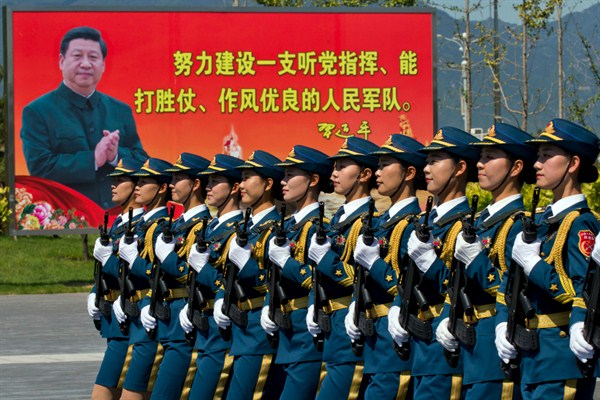Xi Jinping is midway through his tenure as China’s president, and the systemic economic reforms he pledged are nowhere to be seen. The economy is increasingly reliant on debt-fueled investments, while bloated state-owned corporations and banks have yet to be trimmed. All the while growth continues to slow.
In other countries, this would be a vulnerable time for the top leadership. Long periods of dramatic growth followed by stagnation or decline have historically been a backdrop for dissent, and even revolution, as the political scientist James Davies first described in his J-curve theory in 1962. And even though China continues to grow at a considerable pace, a number of prominent economists who study the country fear that, even with these reforms, painful times are on the horizon.
But any accompanying shift in domestic public opinion against Xi’s government is unlikely, thanks to another of Xi’s legacies from the past five years: the massive buildup of China’s propaganda machine.

